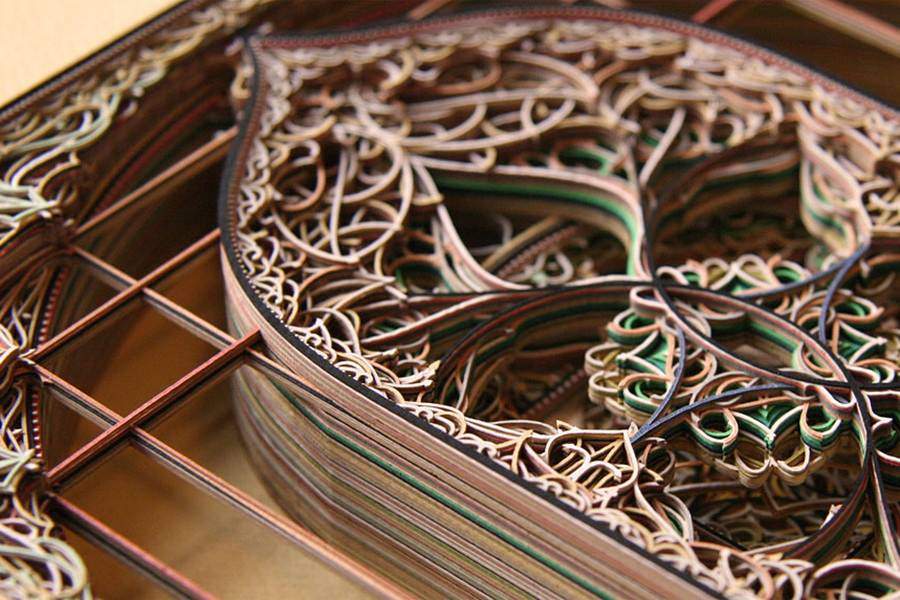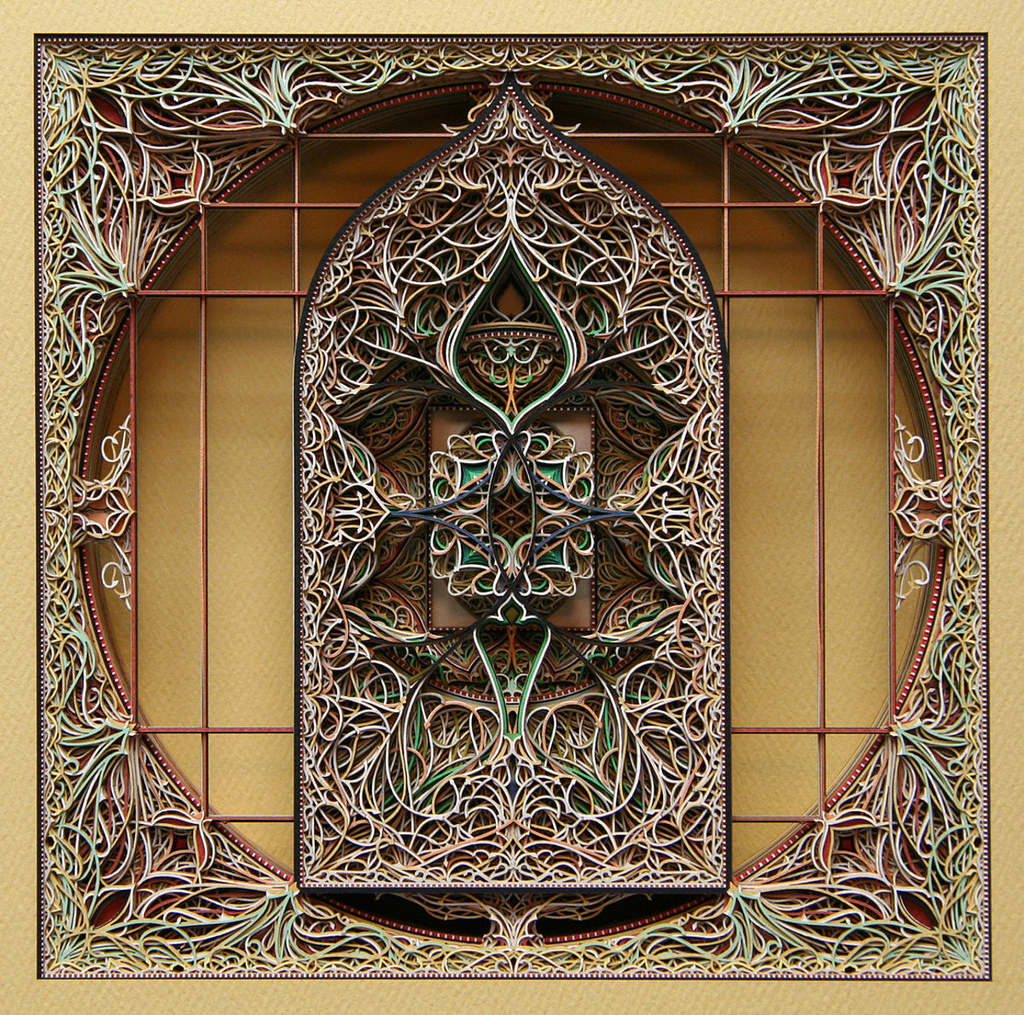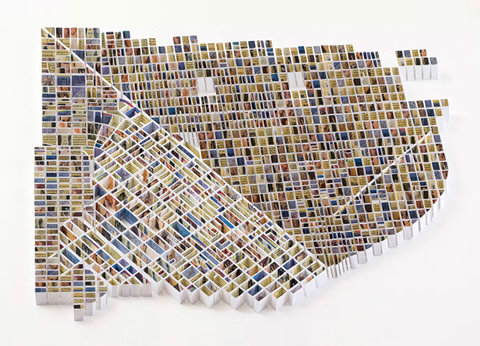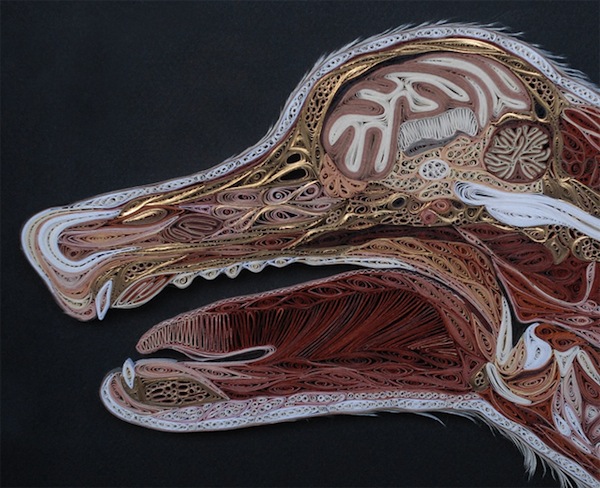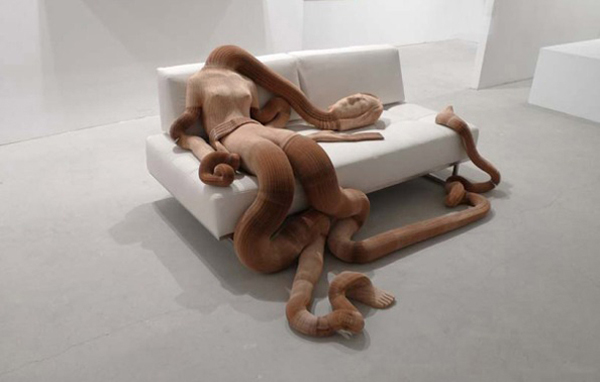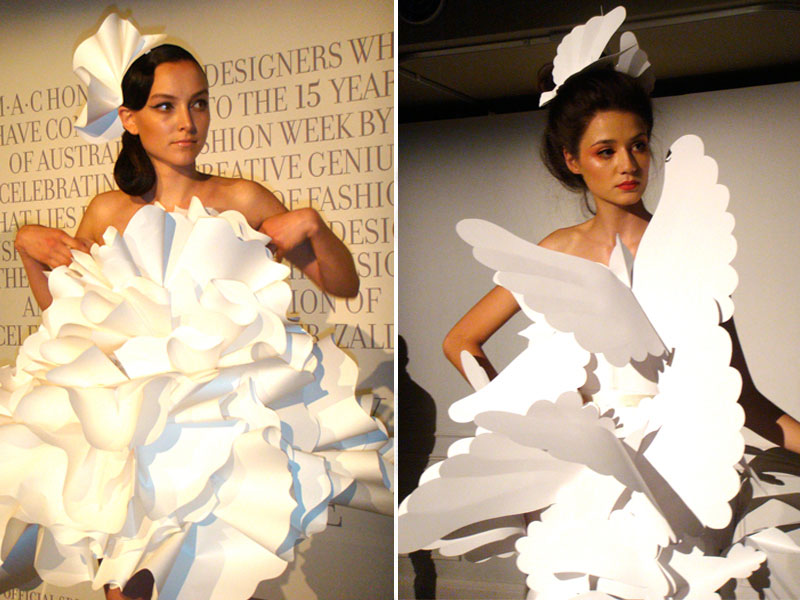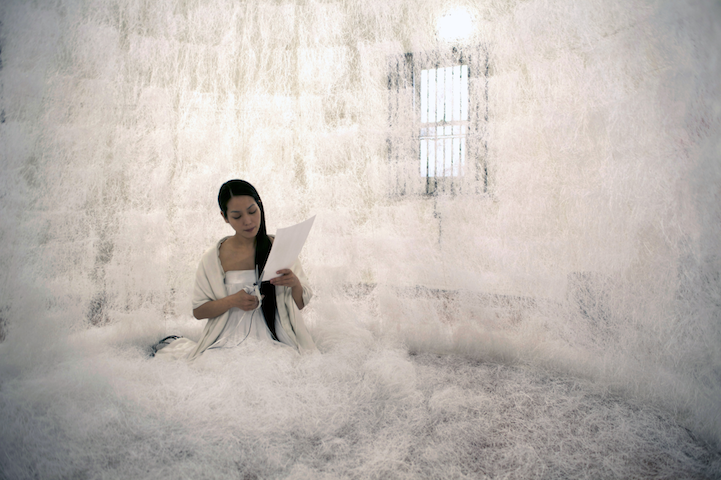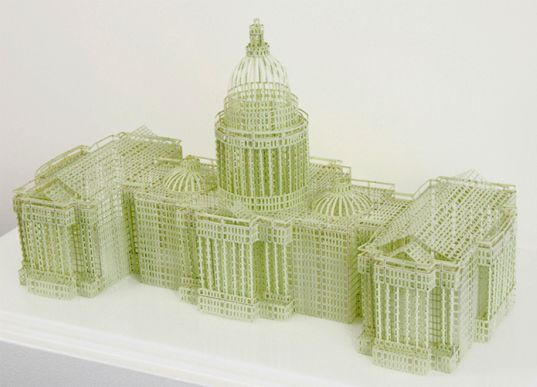Seven Intricate Structures You Won’t Believe Were Made Out of Paper
Check out seven of the most intricate and incredible structures ever made out of paper
While it seems to be a rite of passage for every school-aged kid to learn how to make paper cranes and aeroplanes, very few children would have ever dreamed they'd make a living out of folding paper. There does, however, seem to be a few notable exceptions to this rule.
One such dreamer you might know is the remarkable Australian artist Benja Harney. Harney has transformed his childhood love of playing around with paper into a full-time profession. His incredible paperwork creations have been used for pop-up books, advertising, fashion, illustrations, invitations, and standalone pieces of fine art, with such illustrious clients as Harper's Bazaar, Smirnoff and Sportsgirl forking out the big bucks for Harney's paper structures.
With its incredible intimacy, intrinsic simplicity, and remarkable flexibility, paper provides the artist with a unique material for creating works of art. And for Harney the joy of his craft comes from discovering just "how creative one can be with a flat piece of paper".
Harney is not alone either. Last year's Sydney Biennale featured the paperwork of Japan's Sachiko Abe, China's Li Hongbo and Belgium's Honore d'O, while in America a number of paper artists have made a name for themselves thanks to their amazing sculptures of such seemingly impossible structures as stained glass windows and the White House.
So here are seven of the most intricate and incredible structures ever made out of paper that prove that throwing paper aeroplanes at your maths teacher was perhaps not a total waste of time.
A 'Stained Glass' Window - Eric Standley
These amazing stained glass windows were created from hundreds of interlocking and overlapping pieces of coloured paper. The American-based artist Eric Standley begins the arduous process of making the windows by firstly drawing a design of the window, and then lasercutting through thousands of layers of paper. These are then layered together to create these marvellous 3D structures.
See more of Eric Standley's work here.
San Francisco - Matthew Picton
London-based artist Matthew Picton has taken his love for all things geography to its fullest realisation with his amazing paper sculptures of major cities, from Venice to Tehran to this remarkable reworking of San Francisco. Not only are Picton's sculptures a masterclass in paperwork but also the paper he selects and crafts has particular significance to the cities he represents. His sculpture of Venice, for instance, is made from pages taken from Thomas Mann's classic novel Death in Venice with the paper then dipped in the infamously dank and disgusting lagoons that line the streets of Venice.
See more of Matthew Picton's work here.
Cross-Sectioned Animal Head - Lisa Nilsson
New York-based paper artist Lisa Nilsson is clearly a woman of exceptional patience and remarkable skill, creating these insanely detailed cross-sections through the nauseatingly slow process of 'quilling', or paper filigree. Quilling requires the artist to individually roll, shape and glue small strips of paper and then combine them together to create a larger piece of art. Marrying this skill with her close study of the anatomical structures of humans and animals, Nilsson has been able to create what is undoubtedly the most fascinating science textbook imaginable.
See more of Lisa Nilsson's work here.
A Stretchy Person - Li Hongbo
Chinese artist Li Hongbo devised a mind-bogglingly complex process of cutting and layering thousands of pieces of paper into an intricate honeycomb structure to create striking sculptures that seem to resemble some sort of horrifying Freudian nightmare. Hongbo's sculptures at first seem to be totally normal, solid structures, resembling white marble or resin; however, when Hongbo pulls at his creations, the faces and bodies become distorted and elongated, providing us with some striking and altogether unique pieces of art.
See more of Li Hongbo's work here and here.
'Clothes' - Benja Harney
Australia's favourite origami disciple, Benja Harney, has made everything from feathered wings for a Hermes window display to jewellery for a Sportsgirl shoot to an American Indian headdress for indie-pop sensation Sia — all entirely from paper. Perhaps most impressive, however, are these paper dresses that were showcased at the MAC Launch Party at Fashion Week 2010. The interlocking paper structures blew away the high fashion community with their artistic innovation and creative daring. Not only were the dresses remarkably beautiful but also totally functional pieces of clothing.
See more of Benja Harney's work here.
A Room Like a Cloud - Sachiko Abe
Sachiko Abe may well have the easiest job in art. Abe is a performance artist who sits for hours and days at a time cutting paper into fine strips until she is surrounded on all sides in a cocoon of white paper resembling a sort of winter wonderland. The mysterious and elegant Abe never set out to be an artist but instead began her bizarre career while she was interred in a psychiatric hospital. She found the process of shedding paper to be strangely therapeutic and meditative, once stating that "the act of cutting is a constant exercise through which I organise and structure my random thoughts". The ethereal world of paper she creates around her made quite a splash last year when it was on display at the 18th Biennale on Cockatoo Island.
See more of Sachiko Abe's work here.
Capitol Hill - Jill Sylvia
Whether it comes from some form of extreme patriotism or an addiction to papercraft, Jill Sylvia has spent the last few years turning discarded paper ledgers into iconic US buildings. The structures are made by cutting out the negative space from each paper grid and then joining the remaining squares of paper into an intricate connection of columns, walls, archways and domes. Sylvia has thus far created the White House, American Treasury, and Capitol Hill with many more iconic structures allegedly in the works (or paperworks, even).
See more of Jill Sylvia's work here.
